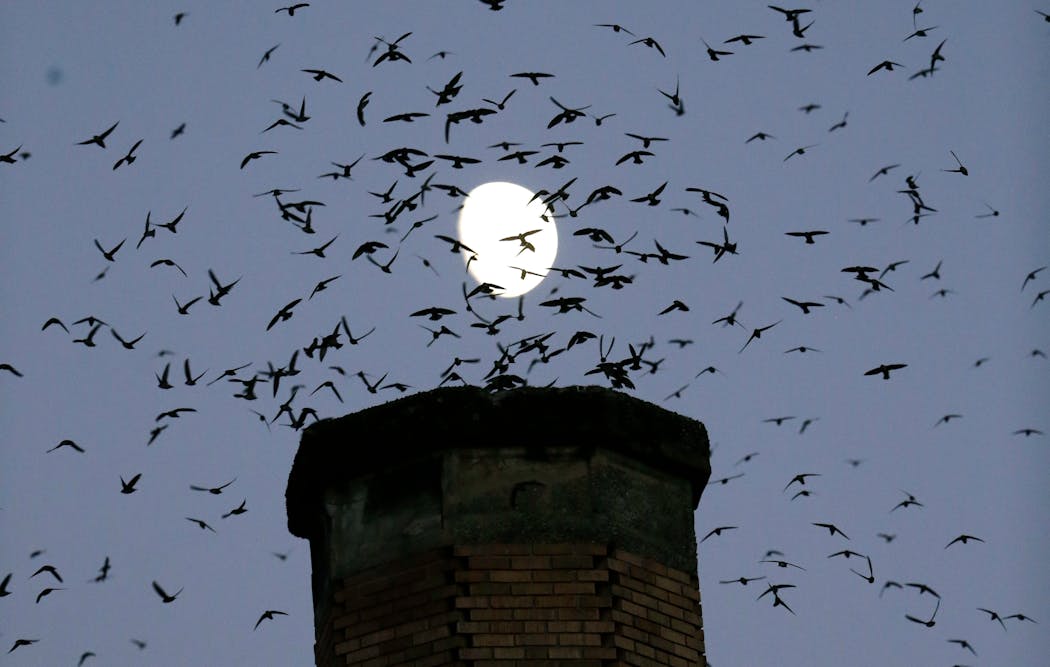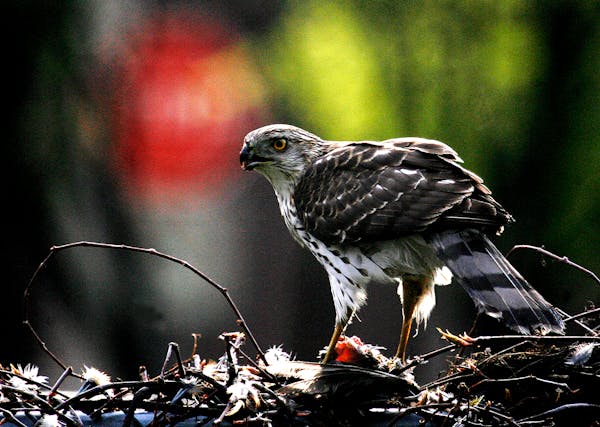There are chimney swifts, black swifts, Vaux's swifts, and white-throated swifts.
The name Vaux as applied to the bird is likely to get the ax in the soon-to-be-underway effort to replace all bird name eponyms, the names of people as given to birds or other living things.
The decision to do this comes from the American Ornithological Society (AOS), the organization responsible for standardizing English bird names across North and South America.
The announcement came in November, almost a quarter-century after the issue of names deemed offensive or exclusionary was first raised, then rejected.
The AOS has said it is committed now to changing all English-language bird names in North and South America that it finds having offensive or derogatory connotations. Actually, all eponyms will be changed.
The effort will focus first birds found in the U.S. and Canada. A committee is to be named, no timetable given. The AOS has said it will "actively involve the public."
Seventy to 80 names are said to be likely candidates for change, with a starting list of about 10 names yet to be announced. Scientific names will not be changed.
The name "oldsquaw" for the duck known as today as the long-tailed duck was changed by the AOS in 2000 after a request by the U.S. Fish and Wildlife Service.
It wanted the change because it sought cooperation from Native American tribes in Alaska that found use of the word squaw offensive.
The AOS at that time balked at making the change, calling the request "political correctness," an insufficient reason for change.
The AOS committee considering the request was following a North American Classification Committee policy of changing names only when forced by changes in taxonomy or to conform to global usage, according to James Van Remsen, emeritus professor at Louisiana State University and an AOS committee member at the time.
Complaints with obviously greater punch have arisen more recently about birds being named for people with unsavory backgrounds.
The most recent instance happened in 2020 when McCown's longspur officially became the thick-billed longspur.
John P. McCown was an amateur bird collector who fought to defend slavery as a Confederate Army general. He also went to war against Native American tribes.
William Sansom Vaux, he of the swift, was a Philadelphia-born mineralogist and president of the Zoological Society of Philadelphia. His friend, John K. Townsend, named the swift after Vaux, an innocent in the matter.
Townsend, also of Philadelphia, was a pioneer ornithologist for whom both a warbler and a solitaire are named. He also is known for atrocities against Native Americans and Hawaiians. Expect the warbler and solitaire to be renamed.
Vaux's name also will disappear from future avian references not because of behavior or beliefs but just because.
The AOS naming decision did not spare eponyms having no negative connotations. All eponyms be gone, the board said, ignoring a 12-0 vote by one of its committees against a total purge. The committee favored a selective approach.
All eponymous bird names are to be changed to names reflecting appearance or behavior or habitat or something.
Hopefully, new names will be more specific than "thick-billed" which raises the question, thicker than what?
Open your field guide to Vaux's swift, a nondescript bird if ever there was one. Go ahead, give it a name.
I shouldn't poke fun at what certainly will be a sincere effort to correct the issue that certain bird names have put on the table, name choices well-intended when given but poorly chosen as viewed today.
Comments from the birding world, made via email networks and the national email exchange BirdChat, are mixed. Some birders see the proposed blanket changes as overcorrection, Mr. Vaux, for example, deep-sixed with Mr. Townsend.
If Mr. Vaux could speak from the grave he might ask, "Why me?"
Find discussion (and a petition) at https://www.change.org/p/petition-to-aos-leadership-on-the-recent-decision-to-change-all-eponymous-bird-names.
12 different names for our cardinal
In 1988 the U.S. Department of the Interior published a booklet titled "Obsolete English Names of North American Birds and Their Modern Equivalents."
The effort here was not to correct names found offensive but to codify names, giving a single species a single name that would apply throughout its range.
To that point, for example, our cardinal, the Northern cardinal to be official, was at one time known variously as the Arizona or Brazilian or common or crested or Eastern or Florida cardinal, the gray-tailed or Kentucky or Louisiana or San Lucas or Santa Gertrudis or Texas cardinal, depending on where you lived or saw the bird.
The booklet was 38 pages of necessary housekeeping.
More on bird names
"The Bird Name Book," published in 2022 by Princeton Press, is, according to author Susan Myers, "an attempt to consolidate and summarize the etymology and history of all the common generic names of birds."
She pointedly does not get into name merit, but hopes the book "may provide a basis for informed discussion on the subject.
"Let's hope, moving forward," she writes, "the human world of ornithology and birding will reflect the wonderful diversity of the birds themselves."
Amen to that.
Her book is a most interesting discussion of the history, meaning and relationships of bird names, worldwide, illustrated with photos and artwork.
Lifelong birder Jim Williams can be reached at woodduck38@gmail.com.

The 5 best things our food writers ate this week

A Minnesota field guide to snow shovels: Which one's best?

Summer Camp Guide: Find your best ones here

Lowertown St. Paul losing another restaurant as Dark Horse announces closing



